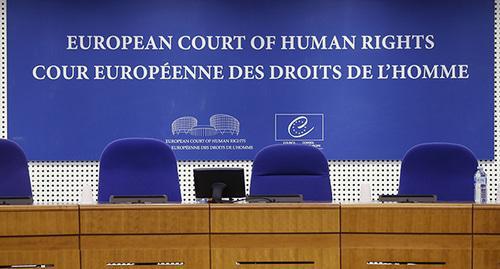
07 December 2018, 08:30
"Memorial" challenges Russian government's position on Gasanguseinovs' murder
The Russian government has declared the inadmissibility of the complaint to the European Court of Human Rights (ECtHR) in the case of the murder of Gasanguseinov brothers in Dagestan, the Human Rights Centre (HRC) "Memorial" has stated.
The "Caucasian Knot" has reported that on November 13, 2017, the ECtHR received a complaint on behalf of Murtazali Gasanguseinov, the father of the killed shepherds. In the complaint, lawyers claimed violations of Articles 2 (right to life), 13 (the right to an effective remedy) and 8 (the right to respect for private and family life) of the European Convention of Human Rights (ECHR). In June 2018, the ECtHR communicated the complaint and requested copies of all the investigation materials.
On August 23, 2016, the 17-year-old Nabi and the 19-year-old Gasangusein Gasanguseinov, residents of the village of Goor-Khindakh, were shot dead in the Shamil District. Law enforcers then declared the murdered brothers to be militants, saying that the young people had opened fire on them from Kalashnikov submachine guns. The Gasanguseinovs' fellow villagers demanded to punish those responsible for their murder, asserting that the guys were shepherds and had nothing to do with militants.
The Russian government sent its response to the ECtHR on October 4, 2018; and on December 4, Darya Bakhareva, a lawyer of the HRC "Memorial", sent her answers to the ECtHR's questions on the complaint, taking into account the materials submitted by the government.
The memorandum of the Russian authorities claims that the investigation of the crime is ongoing; it is efficient; and the complainant's claims are unjustified. "At the same time, the government fails to support its allegations with specific facts, while Gasanguseinov and his lawyers have properly justified their findings in detail. Instead of answering the ECtHR's questions, the government of the Russian Federation stated that the complaint was obviously unacceptable," the HRC "Memorial" has stated.
According to rights defenders, the investigation into the crime can not be called efficient. "The criminal case on the murder was opened only a year and two months after the events. The government failed to explain, in its memorandum, the reasons for such a delay," the HRC "Memorial" has stated.
Its statement also notes that investigators failed to check a possible involvement of employees of one of the security bodies in the murder of Gasanguseinov brothers, although they took part in the special actions that were held on August 23-24, 2016, in the Shamil District.
This article was originally published on the Russian page of 24/7 Internet agency ‘Caucasian Knot’ on December 6, 2018 at 08:58 pm MSK. To access the full text of the article, click here.




